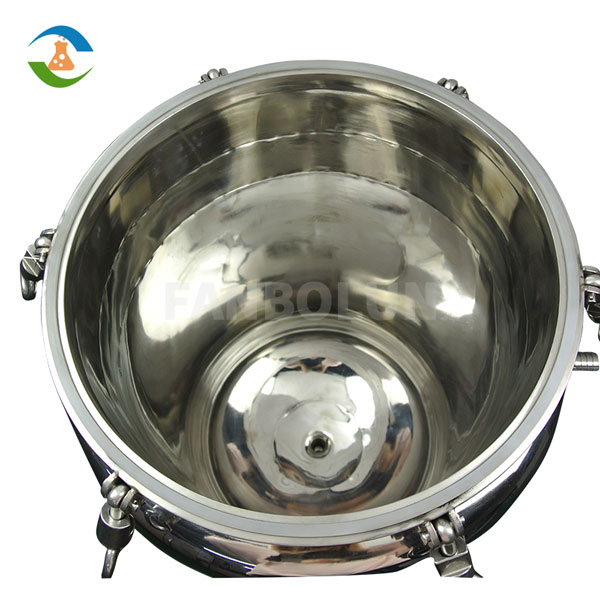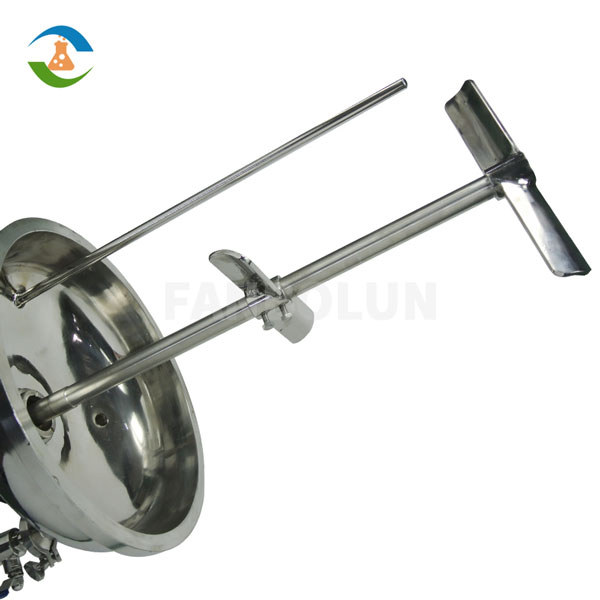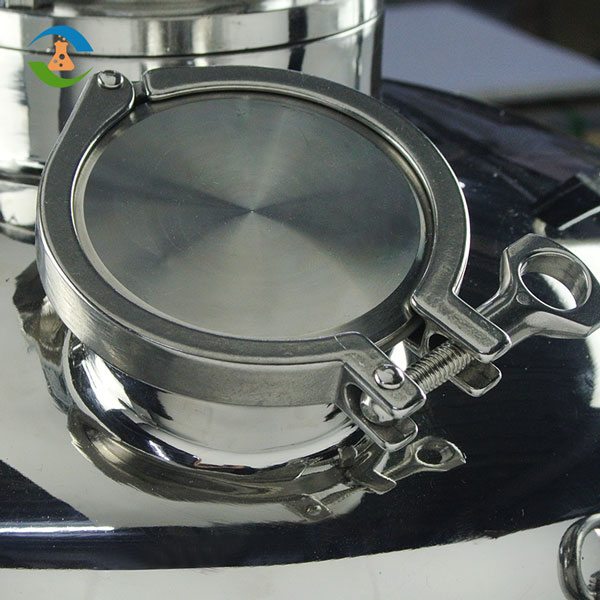In the field of chemical research and development, laboratory reactors play a pivotal role in enabling scientists to study and understand various chemical processes. These SS Reactor serve as controlled environments where reactions can be carefully monitored, analyzed, and optimized. Among the different types of lab reactors available, stainless steel lab reactors stand out as a reliable and versatile option for conducting a wide range of experiments.

The Versatility of Stainless Steel Lab Reactors
Stainless steel lab reactors are highly regarded for their adaptability and durability. The use of stainless steel as the primary material offers numerous advantages, making these reactors suitable for a wide range of applications. Let’s delve into some of the key features that make stainless steel lab reactors a versatile choice for researchers.
Corrosion Resistance
One of the most significant advantages of stainless steel lab reactors is their exceptional resistance to corrosion. Stainless steel is composed of iron, chromium, and other elements that form a protective oxide layer on its surface, shielding it from chemical reactions with various substances. This corrosion resistance allows researchers to conduct experiments with corrosive chemicals, acids, and bases without the fear of damaging the reactor, ensuring accurate and reliable results.

Temperature and Pressure Resistance
Stainless steel lab reactors exhibit excellent resistance to extreme temperatures and pressures, making them suitable for both high-temperature and low-temperature reactions. The robust construction of these reactors enables them to withstand demanding conditions, facilitating precise control over the reaction environment. Whether it’s a reaction that requires elevated temperatures or one that operates at cryogenic temperatures, stainless steel lab reactors offer the necessary stability and safety.

Compatibility with Various Chemicals
Chemical compatibility is a critical consideration when selecting a lab reactor. Stainless steel reactors demonstrate high compatibility with a wide range of chemicals, including organic compounds, inorganic substances, and reactive gases. This compatibility enables researchers to explore diverse reaction conditions and study the behavior of different substances within the controlled environment of the lab reactor.

Applications of Stainless Steel Lab Reactors
Stainless steel lab reactors find extensive application across various scientific domains. Their versatility and robustness make them an indispensable tool for researchers involved in advanced chemical research and development. Let’s explore some notable application areas where stainless steel lab reactors excel.
Pharmaceutical Industry
In the pharmaceutical industry, stainless steel lab reactors are used for synthesizing and refining chemical compounds that serve as the basis for novel drug development. These reactors facilitate the synthesis of active pharmaceutical ingredients (APIs) and the optimization of reaction conditions, ensuring the production of high-quality drugs. Stainless steel reactors’ ability to handle corrosive reagents and maintain precise temperature control is of utmost importance in pharmaceutical research, where even slight variations in reaction conditions can affect the product’s purity and efficacy.

Petrochemical Sector
The petrochemical industry heavily relies on stainless steel lab reactors for various purposes, including catalyst testing, polymer synthesis, and refining processes. Petrochemical reactions often involve highly reactive substances and harsh conditions, which necessitate the use of robust reactors capable of withstanding corrosive chemicals, high pressures, and elevated temperatures. Stainless steel reactors provide the required durability and resistance to ensure safe and efficient petrochemical research and production.

Material Science and Nanotechnology
In material science and nanotechnology, stainless steel lab reactors play a crucial role in the synthesis and characterization of advanced materials. These reactors enable the fabrication of nanoparticles, nanotubes, and other nanostructures with precise control over size, shape, and composition. Researchers utilize stainless steel reactors to study the growth mechanisms of nanomaterials, explore their properties, and develop innovative applications in fields such as electronics, energy storage, and catalysis.
Case Study: Stainless Steel Lab Reactor in Action
To illustrate the practical application of stainless steel lab reactors, let’s consider a case study where these reactors played a pivotal role in advancing scientific research.
A team of researchers at a leading university embarked on a project to develop a more efficient catalyst for a crucial chemical process in the production of renewable fuels. They aimed to improve the catalyst’s selectivity and durability while reducing the overall cost of the process. To achieve these objectives, they employed a stainless steel lab reactor to conduct a series of experiments.
The team used the stainless steel reactor to synthesize and test various catalyst formulations. The reactor’s corrosion resistance allowed them to work with aggressive reactants and test different compositions without compromising the integrity of the equipment. The precise temperature control offered by the stainless steel reactor enabled the researchers to optimize the reaction conditions and achieve higher catalytic activity.
By utilizing the stainless steel lab reactor, the researchers successfully identified an improved catalyst composition that exhibited superior selectivity and enhanced durability. This breakthrough discovery has the potential to revolutionize the renewable fuel production process, paving the way for more sustainable energy solutions.
Stainless steel lab reactors offer researchers a robust and versatile solution for conducting advanced chemical research. Their corrosion resistance, temperature and pressure resistance, and compatibility with various chemicals make them indispensable in pharmaceutical research, petrochemical industries, material science, and nanotechnology. The case study discussed above demonstrates the practical application of stainless steel lab reactors in catalyst development, highlighting their contribution to scientific breakthroughs. With their numerous advantages, including longevity, safety, and ease of maintenance, stainless steel lab reactors continue to play a crucial role in driving innovation and expanding our understanding of chemical processes. Researchers worldwide rely on these reactors to push the boundaries of scientific knowledge and bring about transformative changes in various industries.
